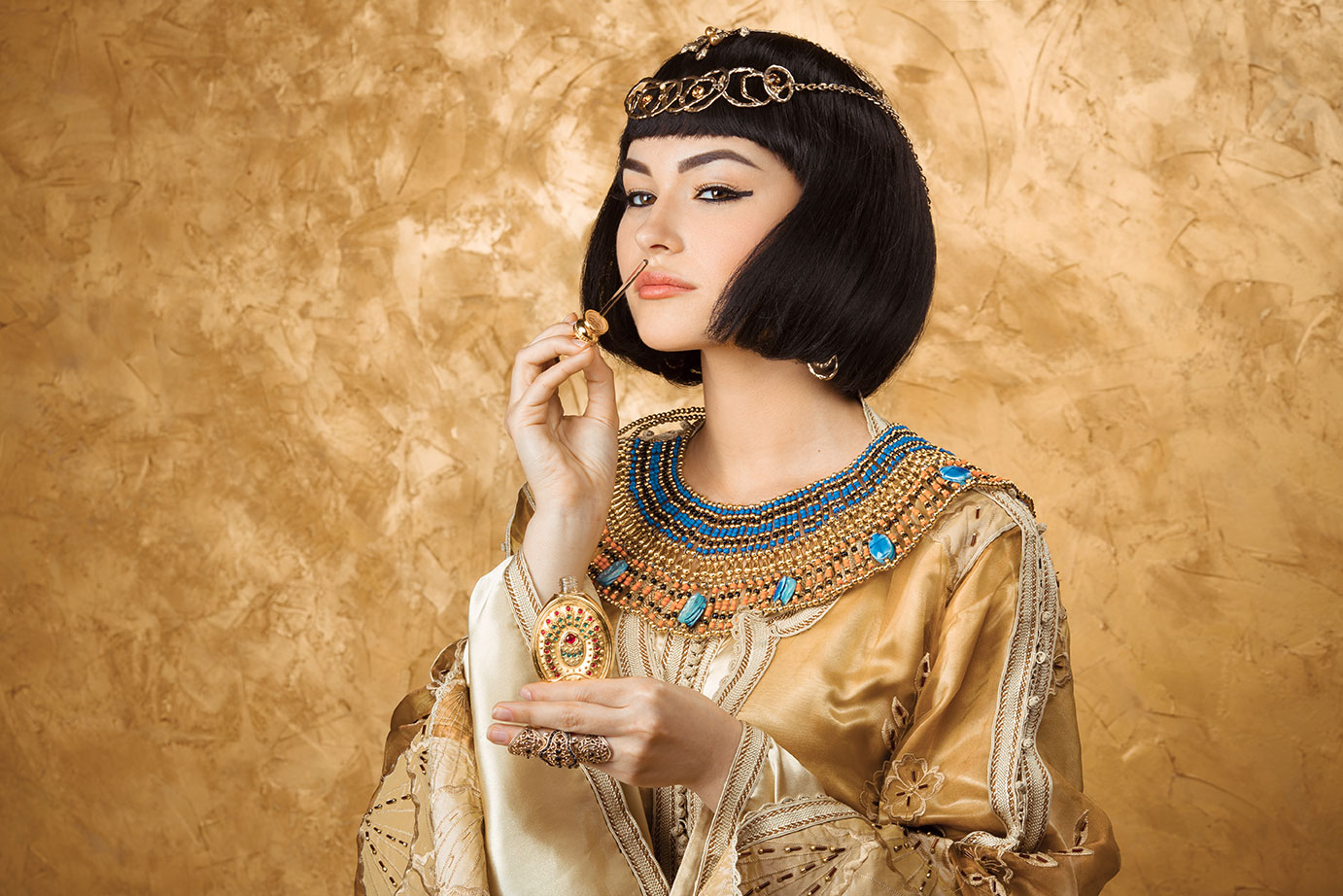
The name perfume in English comes from the Latin “per fumum,” meaning “by the smoke.” The story begins in ancient Egypt in 2000 BC. when people believed their offerings would reach the gods more quickly through the smoke. So they burned wood, herbs, and spices that worked almost like incense.
Cleopatra, the famous Queen of Egypt, also used scents to perfume rooms while waiting for her lovers. For this reason, since then, perfumes have also been associated with seduction.
The use of perfumes arose from the need to aromatize the human body and objects for a longer time. First, these scents were applied to religious rituals and burial ceremonies for the dead. Afterward, it began to be used by pharaohs and court members. And finally, its use became widespread, and everyone started using it.
We can say that the Egyptians started the practice of perfuming through the smoke. But the Greeks perfected perfumery by creating ointment formulas made from essential oils.
And the Romans fell in love with the well-being of aromas, especially in bathrooms, where fragrances were included. And due to the conquests and trade routes of the Roman Empire, perfumery expanded to Arabia, India, and China in cultural exchanges.
In the Middle Ages, a remarkable evolution occurred, and they began to include alcohol in the formulations of perfumes already made with water and oil.
But perfumery as it is known today only began to develop in the 14th century in France. The country, in the future, would become a reference on the subject, making French perfumes the most disputed and desired, synonymous with quality and style. And at the beginning of the 20th century, the concept of aromatherapy was created.
Perfumes are a mixture of several elements:
Essential and Aromatic Oils or Essences, which generate the odor;
Fixatives, which are substances used to delay or prevent the volatilization of essences, keeping them for longer;
Diluents to give the proper concentration – the most common are alcohol (ethane) and water.
There are many ways of preparing and creating different aromas. And since the habit of using perfumes increases every day, more fragrances and production techniques are developed.
There are three categories of perfumes that are universal and vary according to the concentration of essence:
Eau de Cologne: The concentration varies from 2 to 4%, lasting up to 2 hours.
Eau de Toilette: more refreshing, with a concentration between 5 and 15% and a maximum duration of 2-3 hours.
Eau de Parfum: with a concentration of 15 to 20% and can last up to 4-5 hours.
Parfum Extract: concentration above 20%, and can last up to 6-8 hours.
Currently, the perfumery industry is one of the fastest-growing in the world, to the point that, nowadays, you create your own personal and exclusive fragrance. And you can even find your favorite perfume in an air freshener version!

